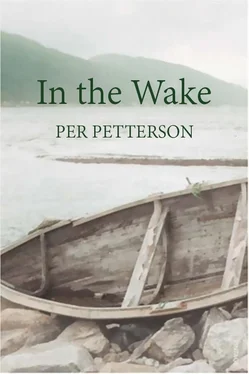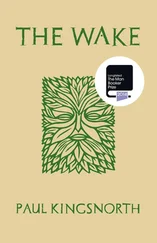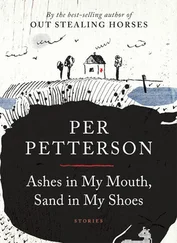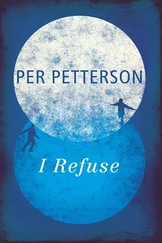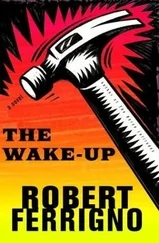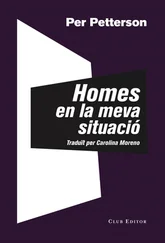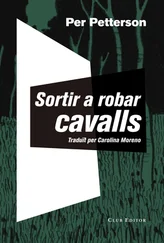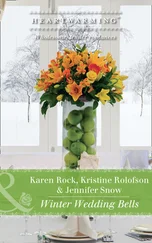I put my boots on and lace them up, then the pea jacket with only a T-shirt underneath, trying not to look down at the floor still covered with glass splinters. I pick up the rubbish bag and stuff the dog-eared, much-read edition of 100 Haiku in Norwegian in my pocket, and then I go out and lock the door and throw the bag down the rubbish shaft, and on my way through the entrance hall I open the letter box. There lies The Class Struggle and two letters. One is from my publisher. Not long ago I would have torn it open at once and gone to sit by myself to read in peace, but now I leave it all where it is, shut the box and go out into the sunshine. It is Friday, I think. The blocks lie in a row shutting out the view, and further up there are terraced houses for those who can afford them and want to get on in the world and have a little lawn they can mow. Some think that important. It will soon be time for the annual voluntary spring-cleaning. Then we must all go out together on the caretaker’s orders to sweep the paths and hose away refuse and dog mess and plant shrubs and paint the fence in front of two square metres of grass on each side of the entrance doors, and though there is not one of us who gives a damn, we have to chat. I simply hate it. I do not know anyone any more, do not know who lives on my stair apart from Naim Hajo although I am the one who has been here longest. No-one in their right mind stays for more than three years.
But at least the sun is shining. The windows sparkle and it’s not nearly as warm as it seemed inside the apartment. I am glad about that. I walk the pathway further up the hill through the neutral zone that divides the area between blocks and terraced houses, and the nursery school is just opposite the small football pitch. All the children are outside. I stop by the fence and stand watching them at play, and see G’s boy on top of a sand heap in a thick jumper and waterproof trousers. He is talking loudly, he waves a little red spade and points. He knows what he wants. He is the boss. And then he notices me standing there watching him, and he has no idea we have been twice in combat, that he was beaten both times, at home and away both. I nod to him with a slight smile, I feel obliged to, and he looks straight at me, and he does not know who I am. He makes a face and then sticks his tongue out. The little bastard. I laugh and shake my head. He is suitably miffed and turns his back and with his little spade starts to shovel sand with great force.
I walk away from the fence and up to the summit where the terraced houses have the finest view of the forest and the valley and all that is nice, and their hedges and lawns will soon be subjected to a strict ritual before spring breaks out in earnest, and right at the top I drop down below the road on a pathway leading into the forest on the other side. The whole time I have had eyes on my back from windows and doorways, and although it has not been as bad as it usually is I stop in the semi-darkness beneath the little bridge to rest and roll a cigarette before deciding whether to turn and go back the same way or take the road round the whole housing area or perhaps some other way altogether. I can go from here and get on to the ancient paths and walk there for days, seeing no other houses than long-forgotten smallholdings with their buildings falling down or crumbled long ago and after that just the occasional log cabin. That is what the neighbours say. I have lived here for fourteen years and never been further in than a few hundred metres to collect fir cones when the girls were quite small and fascinated by small things.
I stand smoking in the shadow of the little concrete bridge, watching the sun shining on the spruces closest by and on the path that bends and disappears behind a cliff. A cluster of birches filters the light in yellow and shining black through its bare branches, and it looks like a magazine illustration or an old print from China or Japan, and I could have hung that picture on my wall. So why not? I finish my smoke and stub the butt out with the toe of my boot and start walking. I turn twice and look back, and the houses are still there, but the third time they have gone. I try to recall the last time I could not see a house or was close to one or inside one, and it must be long since.
I remember one house I was in. I lay on the sofa in the living room trying to recover, I might have been to a party the night before and I felt worn out and left out, I had no family any more, everything was lost. Then my father came downstairs. I knew his step from all others, the weight of him, and he walked past me across the floor to the window and pulled the curtain aside. A faint light came in.
“The fog is lifting,” he said. “We must get going. They are on your trail.” I turned and saw the light on his face, a soft grey light, like invisible smoke in the room. He was as old as I am now, and what he said did not frighten me, for he was keeping watch and knew what we had to do. But there wasn’t much time, I had to pull myself together.
It must have been a dream, of course, because I do not remember what that house looked like from outside or what he saw from the windows or why we were actually there. I remember a lot of dreams. Sometimes they are hard to distinguish from what has really happened. That is not so terrible. It is the same with books.
I walk a kilometre or two over easy slopes both up and down, and then the path bends steeply towards the top of a knoll. I really have to make my legs work, and though my breathing is not that good, the going is better than expected and that makes me enthusiastic. I could have had a dog like Glahn has in Hamsun’s Pan , and it could have bounded in front of me along this path and its name could be Aesop or Lyra, and each time a person or an animal was going to cross our path it would warn me at once so I could retreat among the trees and watch them pass, and the dog would sit there obediently at my feet. I could have had a gun and lived on what I managed to shoot, small game and large birds, and lived in a cabin with the few things I needed: some books, an old-fashioned typewriter, clothes for all seasons and enough dry firewood, I could have been a Tibetan monk, I could have been someone completely different from the person I am, of course, but I am not, and when I get to the top of the knoll and there is a view, I see forest whichever way I turn. Far down to the right is a long narrow lake, and from where I stand I cannot see where it begins or ends. There is ice on the lake with open patches, and I would not have tried to walk on that ice. In the shadows on the other side there is snow on the slope. There ought to have been an elk walking beside that lake, but there is no elk in sight, and everything is quiet, nothing moves but a thin wisp of smoke from some place deeper into the forest.
I sit down by a rock with a view of the lake and roll a cigarette, and when it’s lit I take the book of haiku from my pocket. It is a long time since I read it, but I leaf through and find the poem about the night falling on to the road where no-one walks, and I read it a couple of times and then some more poems, and then one about a willow tree that paints the wind without a brush, and I know willows well from Denmark where you can see them everywhere and there is always a wind, and I can picture it clearly. I close the book and put out the cigarette and look across the lake to the thin wisp of smoke that still hangs there above the forest some miles away and barely moves, and then I close my eyes and rest my head against the rock with the sun on my face and sleep for a while. When I wake what I remember is just something about the wind and a white house by the water.
On the way home I call in at the Co-op and buy the things I did not get yesterday. I just make it before closing time, and in truth I buy rather more than I need, and then I walk up the pathway with the bag in my hand. Clouds have come up and it is cold again, but not that cold. I see no-one in front of the block. Inside the hall I take my post from the letter box, and when I get to my door, Naim Hajo, the Kurd from the second floor, is ringing my doorbell. He has a book under his arm.
Читать дальше
